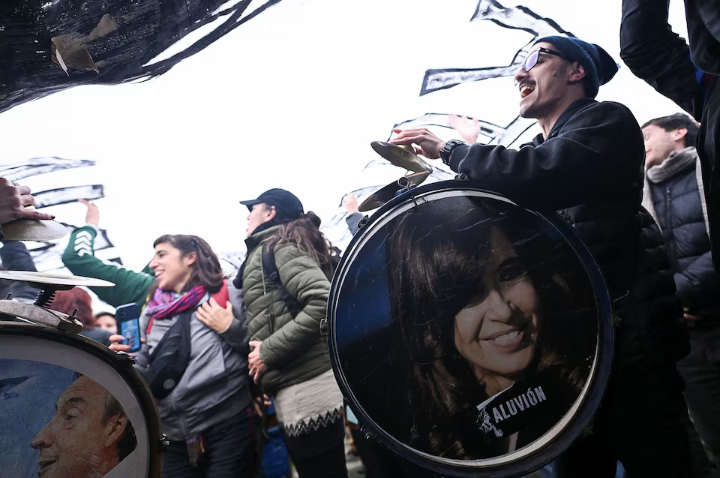Massive crowds flooded the streets of Buenos Aires on Wednesday as Argentina’s former president, Cristina Fernández de Kirchner, officially began serving a six-year house arrest sentence following a high-profile corruption conviction.
The 72-year-old political titan, who served as president from 2007 to 2015, was recently denied a bid to run for public office due to a lifetime ban handed down by the country’s Supreme Court. Despite her legal troubles, Kirchner remains a highly influential figure in Argentine politics, especially among supporters of the Peronist movement. Many of them view the conviction as politically motivated.
Waving banners with slogans like “Always With Cristina” and lighting flares, tens of thousands of loyalists marched through the capital’s streets, creating a loud and visual show of defiance. They rallied outside her Buenos Aires residence, which will now double as her detention site under house arrest. Giant posters of her face adorned balconies, while protestors banged drums and chanted slogans denouncing the current government.
“It was all part of a plan to sideline her from politics,” said Laura Abal, a 66-year-old pedicurist participating in the demonstration. “They know she could still win, so they had to take her out of the race.”
Kirchner’s sentencing stems from a fraud case related to public infrastructure contracts in the Patagonia region. The Supreme Court upheld the 2022 ruling last week, affirming both the prison term and the ban from holding any public office for life. Though she retains roughly 20% of voter support, her leadership style has long polarized Argentina — admired by some for championing social programs, but criticized by others for heavy-handed economic intervention.
Political analysts suggest her house arrest may ironically enhance her legacy, portraying her as a political martyr. From her apartment, she may still exert influence over the Peronist bloc, which has dominated Argentine politics for the past 50 years.

Known for her theatrical flair, Kirchner took to social media platform X (formerly Twitter) shortly after the sentencing with a characteristically cheeky post: “Can I go out on my balcony or not?” The joke referenced the crowd of supporters outside and potential legal restrictions on stirring public unrest.
While President Javier Milei — Kirchner’s ideological opposite — has remained quiet about the ruling, his spokesman Manuel Adorni offered a careful response.
“The arrest of a former president is never a moment of joy for any democracy,” Adorni said. “But it is satisfying to see that justice works and that the law is applied fairly.”
Still, Wednesday’s protests reveal that while Kirchner may be under house arrest, her political fire — and her supporters’ loyalty — is far from extinguished.



